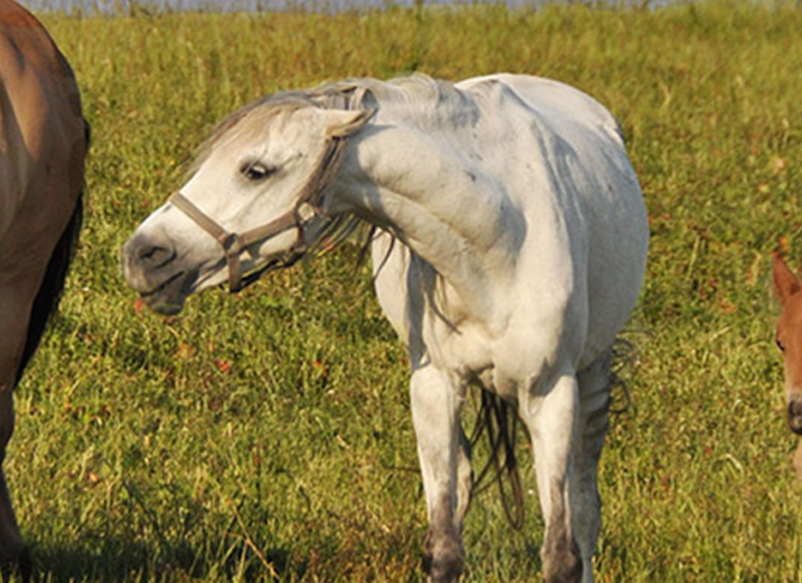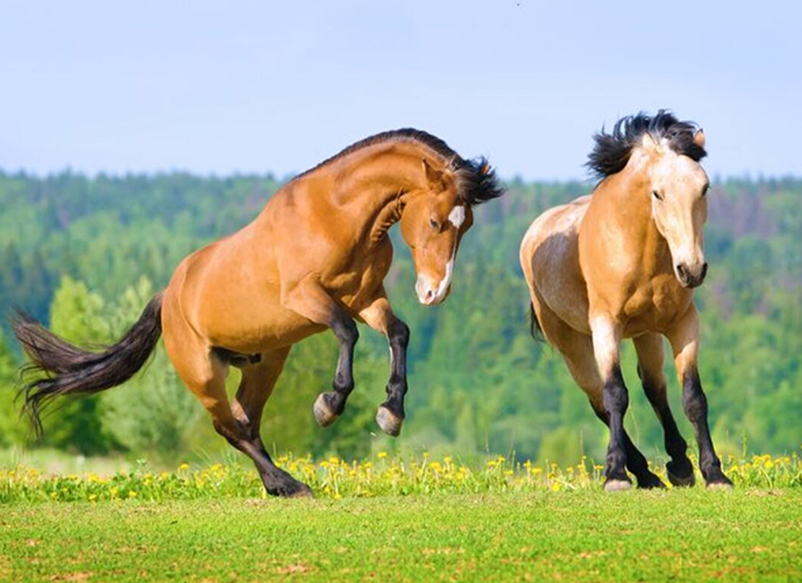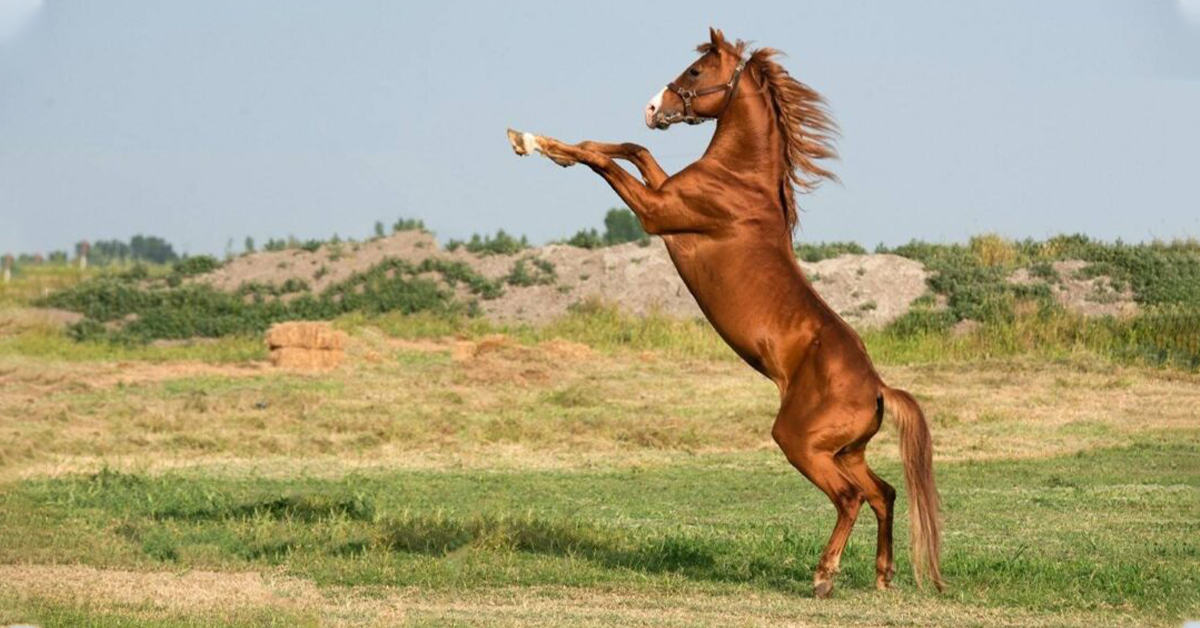Horses are graceful, beautiful creatures that possess great strength and individual personalities as well. While most horses are gentle and docile, you may be faced at times with an aggressive horse. Understanding the causes and actions associated with aggressive behavior in horses is valuable for horse owners and trainers alike. Whether you are a seasoned rider or just new to the world of horses, understanding aggression and how to manage it can mean the difference between life and death for safety reasons as well as proper training of your horse.
This blog will focus on the causes of aggressive behavior in horses, the signs to look out for, and how to effectively handle or correct aggressive tendencies in your horse.
What is Aggressive Behavior in Horses?
Aggressive Behavior in horses can be manifested in several ways: biting, kicking, charging, and pinning the ears back as an indicator of warning. Since horses are prey animals, much of their behavior is ruled by instinctive reactions to protect themselves as well as to establish social order. Aggressive behavior in horses may sometimes be a reaction to fear and anxiety, but sometimes it is an effect of improper handling or lack of socialization, pain, or illness.
It is necessary to identify first the real cause of aggression before taking some measures to address the problem. Recognizing signs and triggers of aggression can help in more appropriate steps to be undertaken against potential escalation and develop a relationship of trust and respect with your horse.

Causes of Aggressive Behavior in Horses
There are various reasons why a horse might become aggressive. Once these causes are known, they can be addressed and managed to correct the aggression. Some of the most common causes of aggressive behavior in horses include:
1. Fear or Anxiety
Horses are prey animals, and as such, are naturally sensitive to their environment. A horse, that feels threatened or is in a strange situation, may act aggressively based on their fear. For example, when a horse feels it is trapped, cornered, or intimidated, it may turn aggressive. This can happen if a horse has not been well-socialized or exposed to various environments.
Desensitization techniques, gradual exposure to new experiences, and positive reinforcement can manage fear-induced aggression in many cases. It has been proven that a safe and calm environment would also make the horse feel more secure, reducing fear-based aggression.
2. Pain or Illness
Pain or discomfort is another common reason for aggressive behavior in horses. Horses are stoic, so they do not make outward signs that they are in pain, but when they are uncomfortable, they will react aggressively. This can be a sign of several conditions such as arthritis, hoof problems, back pain, or dental issues.
An aggressive horse may react sharply if touched in a sore spot, perhaps especially while being groomed, saddled, or when pressure is applied. Pain or illness should be ruled out by taking the horse to see a veterinarian; treatment of the underlying medical problem often resolves aggression.
3. Dominance or Territorial Behavior
They establish some sort of hierarchical rule, very much like many other animals. An aggressive horse may well be in a dominant position if he attacks. A horse may need to prove itself as a leader either with other horses or towards humans.
Dominance aggression is a bit hard to manage, but training can be made consistent and boundaries can be set up effectively. Knowing the body language of your horse and ensuring that you are the leader in the relationship is very critical for preventing dominance-related aggression.
4. Improper Handling or Training
Improper handling or training is one of the other causes of aggression in a horse. When a horse is mishandled, abused, or put through harsh training procedures, it may begin developing aggressive behaviors for the defense of its own. Furthermore, the horse may become frustrated and aggressive due to ambiguous, unclear, or even inconsistent training.
It is also recommended to use positive reinforcement to prevent aggression due to poor handling and to build on consistent training techniques rather than punishment. Trust between the horse and handler is what keeps aggressive tendencies to the minimum.
5. Hormonal Changes or Seasonal Behavior
Hormonal changes, especially in stallions, may lead to aggressive behavior in horses. The hormonal imbalances of stallions tend to be more territorial and aggressive, especially when the breeding season starts. Hormonal changes related to estrus can also cause mood swings and aggressive behavior in mares.
Management at such times will require special care and attention. For instance, an aggressive horse stallion can be gelded, which will make the horse less aggressive, or mares can be managed in better ways when they are in heat.

Signs of Aggressive Behavior in Horses
Any recognition of the signs of aggression is fundamental for preventing further escalation and ensuring the safety of both the rider and the horse. Some common manifestations of aggressive behavior in horses include:
- Pinned Ears: The first sign of aggression in a horse is usually pinned-back ears, lying flat against the head. This signals that the horse is fed up or feels its personal space has been intruded upon.
- Biting or Nipping: Biting is a prevalent form of aggression by horses. This can be during grooming, feeding, or when a horse feels threatened.
- Kicking or Striking: The horse will probably kick or strike forward when faced with cornering or threats from other animals. This is a dangerous form of aggression because it can target humans or other equines.
- Charged Attacks: Some horses may charge towards a handler, which is often found to be associated with provocation or challenge. This usually occurs within dominant horses and those that have poor training.
- Pawing or Snorting: A horse that paws at the ground or snorts might signal frustration or annoyance.
Preventing a horse from attacking is considered more difficult than recognizing the signal or indicators of an aggressive horse.
Managing Aggressive Behavior in Horses
After knowing and understanding what causes aggression and the signs of an aggressive horse, proper management or correction of the behavior should be made. Here are some strategies to manage a horse that shows signs of aggression:
1. Establish Leadership and Consistency
One of the best ways to manage an aggressive horse is to establish a leadership role in your relationship with that horse. Since a horse is a prey animal, it instinctively looks to its handler as a source of direction and reassurance. Consistency in action, training, and handling assists in establishing trust on your part with your horse and ensures that it is aware of its boundaries.
Always communicate clearly and insistently, but never harshly or punishingly. Express confidence in your horse through body language and be calm and patient being around it.
2. Desensitization and Positive Reinforcement
If a horse’s aggression is based on fear or anxiety, then desensitization and reinforcement should be done. Gradually expose the horse to stimuli of its fear, starting with less threatening situations but becoming increasingly stressful. Reward good behavior with treats, praise, or soothing words to reward positive actions.
With time, horses will become accustomed to change and express less aggression based on fear.
3. Pain Management and Veterinary Care
Pain could be a contributing reason behind aggressive behavior in horses, and hence a vet consultation would always be required. Treatment of injuries or illness, treatment for pain, and regular check-ups would help curb the underlying cause of aggression in horses, thus improving behavior.
4. Proper Training Techniques
To avoid aggression resulting from improper training, positive reinforcement techniques like clicker training or reward-based systems should be utilized. Never use physical punishment or negative reinforcement because it usually leads to frustration and escalation of aggression. Ask for help if necessary, and work with a qualified trainer to achieve proper training that will promote positive behavior in your horse.
5. Managing Hormonal Changes
Management may be needed for any hormonal changes, especially if your aggressive horse is a stallion or a mare in heat. Aggression can often be reduced by gelding a stallion, and managing the estrus cycle and providing a calm environment can help reduce aggression in a mare.

Conclusion: Understanding Aggression and Building a Positive Relationship
Aggression in horses is often induced by several factors: hormonal changes, fear, pain, and poor training. With that said, it is rather essential to determine what triggers aggressive behavior so that it is managed and corrected in a safe, effective manner. Whether your horse is aggressive due to pain, fear, or dominance, working to change these behaviors patiently and thoughtfully will create a healthier, more positive relationship with your horse.
If you can recognize signs of aggression, treat its origin, and train a horse in the right manner, then you will be able to convert a horse that is aggressive into a calm, obedient companion. You will have a safe and enjoyable time with your equine friend with time and consistency knowing your horse’s needs.
Related: HorseShoeing: Pros and Cons

